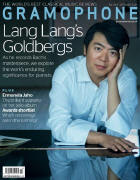Texte paru dans: / Appeared in: |
|
|
Outil de traduction (Très approximatif) |
|
|
Reviewer: Richard Lawrence Armide was the last of Lully’s collaborations with the librettist Philippe Quinault. It was staged at the Paris Opéra in 1686 and, like several of Lully’s other operas, it was revived from time to time over the next hundred years. Despite various alterations and cuts the original edifice, so to speak, remained standing. But a new setting of Quinault’s libretto for Thésée by Mondonville, put on at the Opéra in 1767, provoked outrage. So Gluck must have been trailing his coat when his version of Quinault’s Armide was premiered at the Opéra in September 1777. As it happened, Gluck’s opera soon gained acceptance. But the initial hostility from the public piqued the interest of Anne-Pierre-Jacques Devismes du Valgay, who was appointed director of the Opéra some six months later. Devismes proposed to revive Lully’s Armide for comparison, updated to suit contemporary taste: he therefore commissioned a revision from Louis-Joseph Francœur, maître de musique of the Opéra orchestra. (Louis-Joseph’s uncle, François Francœur, had done a similar job back in 1761.) And that, till now, was the end of the story, for LouisJoseph’s adaptation was never performed. It is thanks to the scholarly efforts of Julien Dubruque and Benoît Dratwicki, the indefatigable artistic director of the Centre de Musique Baroque de Versailles, that a performing version came to be made from the manuscript in the Bibliothèque Nationale. The article by Dratwicki in the hardback enclosing the CDs, and a random comparison with the original opera recently recorded by Christophe Rousset (Aparté, 7/17), shows where the differences lie. The prologue is omitted, as in the Gluck. Lully’s voice parts are intact, more or less, where they haven’t been replaced; but out goes the harpsichord continuo, so all the recitatives are accompanied by the strings, who often indulge in new arpeggio and scale figures. The orchestra is expanded to include full double woodwind, horns and trumpets. There are several new instrumental pieces, starting with a new overture in the classical style that contrasts strings and woodwind after a pedal point beginning; a Chaconne is inserted into Act 1 – the trumpets not always quite in tune – and there’s a new Passacaille in Act 5 to replace the original, for which Lully was justly celebrated. That was perhaps the nearest that Francœur came to committing lèse-majesté. Not surprisingly, his reworking sounds quite like Gluck in places: certainly the Naiad and ‘the demons changed into nymphs’ (disc 1, tracks 22-23) sound as if they have just come from a pleasant afternoon with Eurydice and her friends in the Elysian Fields. The story, from Tasso’s epic poem Gerusalemme liberata, has attracted dozens of composers from Monteverdi to Dvo∑ák. Armide, a Saracen sorceress trying to resist her love for the crusader Renaud, is a splendid vehicle for Véronique Gens. Having given us an amuse-bouche in the first of her ‘Tragédiennes’ recitals (Virgin/Erato, 8/06), she now seizes the opportunity of portraying the character in the round. If she doesn’t quite match the venom of Marie-Adeline Henry at ‘Que je le hais’ – ‘How I hate him’ – on the Rousset recording, she makes up for it later at ‘Que … je le haïsse’ (‘Let me hate him’). That comes at the end of Armide’s famous monologue ‘Enfin, il est en ma puissance’. Gens is in glorious voice, as she is in the new air that opens Act 3, with its woodwind solos and Bachian arpeggios. Reinoud Van Mechelen is ideal as his namesake, mellifluous and attentive to the text. The other singers, familiar specialists in this repertoire, are excellent, Tassis Christoyannis especially robust in the extended scene for Hate. Le Concert Spirituel and Hervé Niquet are in fine form, and the recording from the Arsenal concert hall in Metz is warm and clear. |
|




